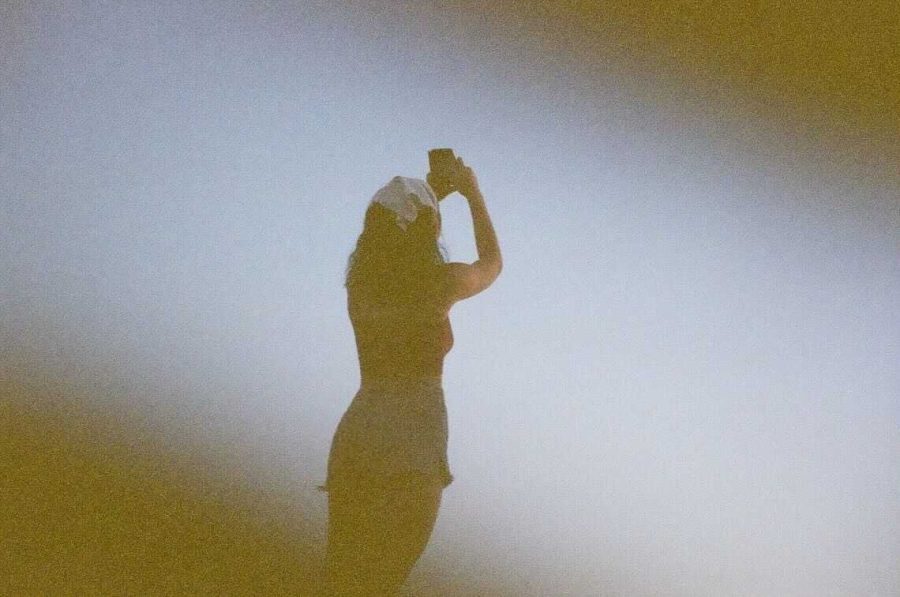It’s all about intimacy, baby. It’s tough for me to unclench long enough to decipher what that word means exactly. Honesty’s a foundational component. An openness and willingness to communicate your feelings regardless of how the information is received? Sounds like a drag.
I’ve never really been a super transparent person. I’ve had fantastic people in my life that have gotten me to open up, but that was a product of a lot of time and patience. Interestingly enough, considering my aversion to intimacy, my favorite holiday has always been Valentine’s Day. I love love — platonic, romantic, you name it. I love the idea of it, seeing other people get dramatically sentimental, and how it feels like it’s always spring. However, there is one variety I recently learned that I am lacking in: self-love.
I also feel a little green when I hear the phrase. I’ve always thought I was smart, nice, whatever the signs are that lead to liking yourself. But loving myself? That seemed a little much, especially when I have family and friends and sometimes a partner to care for. It wasn’t until my most recent romantic relationship that I realized how much my lack of self-love was impacting the ways in which I showed it to other people.
The cliché about not being able to love someone until you love yourself seems tired, but it’s a cliché for a reason. You can totally love another person if you don’t love yourself, you’re probably just not doing it right.
There is a right way and a wrong way to love. More sterile than poetic, I’ll admit – but it’s true. The “right,” healthy way starts with a foundation of honest and open communication. It is extremely difficult to achieve if you don’t hold that kind of rapport with yourself.
Right before Valentine’s Day, I decided to attend one of Campus Health’s sex talk seminars. Every year they hold a week-long collection of support groups, presentations, STI testing, etc. You might remember walking through campus sometime last year and being caught off guard by the booths of sex toys and free dental dams on the mall. This year everything was virtual.
Originally, I wanted to attend to take notes and write something along the lines of “I watched someone talk about gonorrhea for an hour so you don’t have to!” However, it turned into me muting myself during the “Sex, Intimacy, and Body Image” seminar so no one could hear me sniveling.
RELATED: COLUMN: Toxic diet culture’s influence on mental health
The speakers began with this question: “What are some barriers to sex and intimacy due to body image that you might have experienced?” They offered answers such as the pressure to look a certain way for your partner and unrealistic standards regarding bodies in sexual settings. This can lead some to always turn the light off during sex or not eat the day of a sexual encounter. Hypersexualization, varying opinions on body hair and the overall pressure to look “good” can drown out the possibility for connection and pleasure.
But what if it’s not just societal pressures but pressure from your partner to look and perform a certain way? The speakers suggested that if your partner’s comments, or anyone for that matter, are causing insecurities then it’s time for a little conversation.
They suggest planning a conversation in a neutral space, outside of the bedroom, to talk about the issues and insecurities at hand. Also, the use of non-hostile “I” statements were stressed. This is important for a current relationship, but what do you do if your insecurities were carried from past psychological trauma? Well, if you find out let me know. My current experiment has been therapy.
Societal expectations, unrealistic beauty standards, unwarranted criticism, and our dear friend baggage. Nice, I can check those off the list of things I didn’t know I needed to hear. “Your partner loves you for more than your body,” was also offered, albeit a hard pill to swallow.
After the Zoom meeting closed and I had mysteriously cried through an hour-long seminar, I couldn’t even think about my original assignment. I needed to know where all of this pent-up emotion around intimacy came from.
I’ve always thought of myself as someone who was lucky enough to know love. My romantic endeavors have left me with positive takeaways. I’ve come to the conclusion that it has less to do with my relationships with others, and more with the one I have with myself. It was time to have a long-overdue conversation with yours truly.
If romantic love was always the thing that kept me warm, what happens when I’m left to kindle the fire? I run cold. And I’ve run cold time and time again in my searches for another heat source. I had become accustomed to measuring my worth and personhood on how much certain people liked me.
Every relationship I have ever been in required the same role from me. I would find a way to be a complementary partner — fixing and coordinating, managerial-like responsibilities. In return, I was used to my partners carrying the emotional weight of the relationship, and as a result, I never learned how to myself.
Apparently, being open about the details of your life, thoughts, and experiences is not the same as being open emotionally. Yes, our dear friend emotional availability. I couldn’t keep curating romance, it just wasn’t convincing anymore.
This pseudo security that I had been exhibiting in my relationships was just a projection of the same faux security I had in myself. Projecting? Yes, her too. Just because I had experienced great love in the past doesn’t mean that it was always healthy, and it has been very difficult to sit with the fact that this quality was not necessarily a product of great pairings, but might have been just great partners.
After over a year of being forced to spend time with myself, I realized that I didn’t even like myself that much. At least, not for the things I expected other people to appreciate. Furthermore, I realized that every issue I could point out in my current relationship and partner was only visible to me because I was finally getting a taste of my own medicine. This is not to say that one is incapable of identifying things in others that they do not hold themselves, but the things that I had noticed were magnified because of the extra time I had been spending alone in quarantine. It was like looking at myself from two angles at once.
RELATED: OPINION: Stop normalizing eating disorders on college campuses
I expended a lot of energy trying to get other people to understand and care for a person that I didn’t really know or like. Love languages are important, but just because someone isn’t fluent in yours doesn’t mean that they don’t care about you. Likewise, you can’t teach someone a language that you yourself are not fluent in.
It’s not that I expect someone to like the body that I hate, it’s that I cannot believe them even if they say they do. If I don’t appreciate myself enough to compliment myself, to spend time with myself, then I couldn’t fathom anyone else doing it untasked. It’s difficult to get away from the thought that if I can present myself a certain way, if I can mold into all of the little boxes of what I think is expected of me then maybe I can also be convinced. It’s this cyclical thinking that perpetuates internal dishonesty and insecurity. And as much as I’ve tried to deny it, people can smell that self-deprecating sh*t from a mile away.
I’ve more recently been reframing my insecurities as conditional belief systems and imposed means of disempowerment. No matter how much I accommodated everyone but myself, circumvented authentic communication by people-pleasing, and did everything in my power to avoid finding and expressing who I really was, it never satisfied me because it was inauthentic. It was exhausting simulating romance and connection rather than being an active participant, and the only one I had to blame was myself and my fears. I could be whoever I wanted with the lights off (literally and metaphorically).
Although a firm believer in body neutrality, I do revel in the days in which I feel particularly confident. I’m okay with being comfortable with myself rather than getting rock hard at my reflection. But, closeness in all forms is much more achievable on the days where I choose not to pick myself apart. Even so, with all the pressure I’ve felt to accept my outer form, it’s the reception of what’s inside that has always scared me.
It’s simpler to mask your personality than it is to pick out a flattering outfit. And when you can’t find a top that covers what it needs to, you can always make your behavior more palatable. Intimacy encapsulates more than just the physical, but even the physical aspects are hard to enjoy if you’re constantly worried about remembering your lines.
I can trace my anxieties about my body and my self-worth adjacent to other people back to my upbringing, my experiences as a girl and a woman, media, society, and so on. But, none of those factors will ever change. It’s all already happened and a lot of it will continue on. The longer I hope for something new to come along to shake me out of my old ways the more disappointed I’ll become. Disappointment is just the gap between your expectations and your experiences. The only thing I expect of myself now is honesty, everything else should follow suit.
Follow Selena Kuikahi on Twitter

Selena Kuikahi (she/her) is a senior studying both film and television and law.









